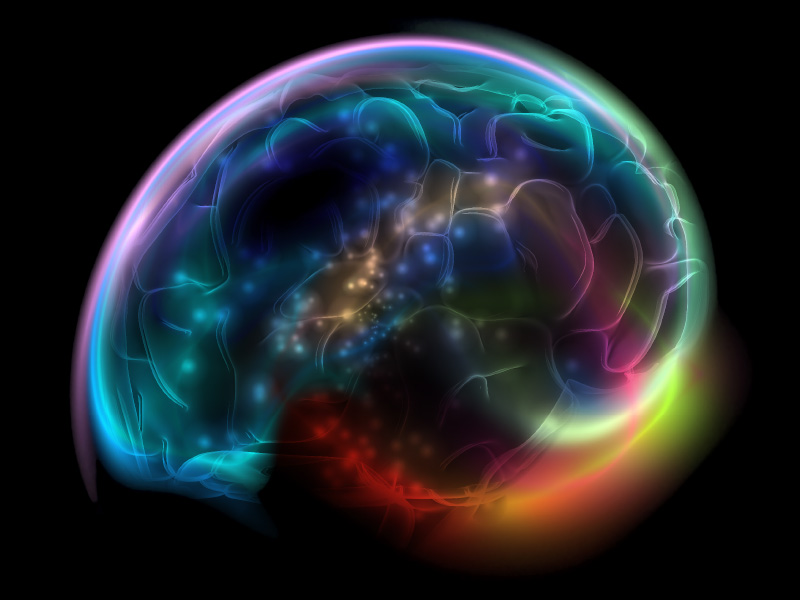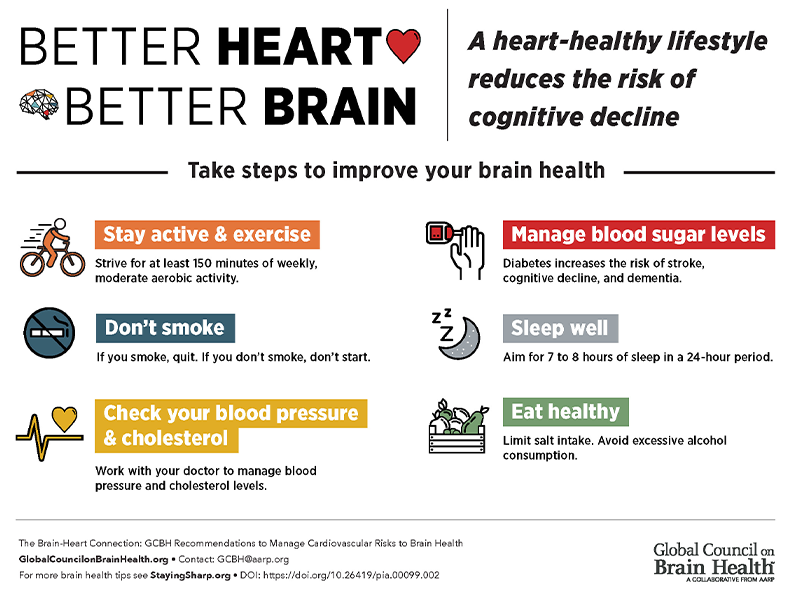AARP report: Heart health can lead to brain health

A consensus paper from the AARP and the Global Council on Brain Health echoes what University of Mississippi Medical Center experts have said for years: “What’s good for your heart is also good for your brain.”
A Medical Center expert on brain aging and dementia helped prepare “The Brain-Heart Connection.” Dr. Tom Mosley, Robbie and Dudley Hughes Distinguished Chair and director of The MIND Center, was one of the 11 experts selected worldwide to review research and prepare guidance for people over 50 and health care providers.
Published Feb. 10, the report summarizes the importance of managing blood pressure, blood sugar, weight and other cardiovascular risk factors in preventing dementia.

“Dementia is a major cause of disability in older adults, affecting more than 50 million people globally. It is an enormous public health problem,” said Mosley, who studies Alzheimer’s disease and other forms of cognitive decline. “However, even in the absence of cures, we see that certain risk factors, if controlled, may lessen the risk of cognitive decline and dementia in older adults.”
These risk factors include high blood pressure, high cholesterol, diabetes, smoking, sedentary lifestyle, obesity, high salt intake, poor sleep quality and irregular heartbeat. Each can raise the risk of heart disease, stroke and different forms of dementia.
“We know that cardiovascular risk factors can lead to stroke and vascular dementia, but we've also found that the same factors increase risk for other types of dementia, most notably Alzheimer's disease,” Mosley said.
Mosley said it was an honor to be included on the report’s expert panel, saying it underscores the research achievements made by The MIND Center.
The MIND, or Memory Impairment and Neurodegenerative Dementia, Center at UMMC leads research on and provides clinical care for patients with Alzheimer’s disease and other forms of dementia. Studies at The MIND Center include the multisite Atherosclerosis Risk in Communities Neurocognitive Study, or ARIC NCS, Study, which has studied cardiovascular disease and brain aging in 16,000 people, including approximately 4,000 African-Americans from the Jackson metropolitan area.
For example, Mosley said, The MIND Center has “found that even in the absence of brain changes related to clinical stroke, controlling high blood pressure and diabetes may decrease the risk of dementia later in life.”
This finding extends to people with “high normal” measurements, such as pre-hypertension and pre-diabetes, during middle age.
In the absence of stroke, Mosley considers hypertension, diabetes and smoking to be the most influential dementia risk factors outlined in the report, based on their prevalence and their outsized effect on brain and heart health.
“However, if an individual has atrial fibrillation or a history of excessive alcohol use or another risk factor, that could be the most influential risk factor for them,” Mosley said. “It’s never too late to start taking steps to lessen your risk for dementia, and the earlier in life you start, the larger the risk reduction will be.”

The report also highlights where experts still don’t know enough. Mosley said we are still unsure of the causal mechanisms that link brain and heart health.
“What is it about damage, often subtle, to blood vessels that damages the brain, beyond the known effects of a stroke?” Mosley asked. One possibility is that blood vessel damage produces chronic inflammation and immune responses that promote brain aging and cognitive decline, but more work is needed to understand the underlying mechanisms.
The MIND Center’s ongoing research includes a collaboration with Johns Hopkins University studying cardiovascular risk factors and amyloid plaques in the brain, a marker for Alzheimer’s disease. They are also part of the UMMC MIND Center-Mayo Clinic Study of Aging, studying geographic and racial differences in risk and burden of dementia.
“We want to elucidate the factors that explain why cognitive decline and dementia are more prevalent in our region and in African-Americans,” Mosley said.
“The Brain-Heart Connection” has received the seal of approval from multiple health-related associations.
“The American Heart Association endorses this report and commends AARP for focusing on the heart-brain connection. Despite growing science about this relationship, most people are not aware of it,” said Dr. Mitchell Elkind, president-elect of the American Heart Association.
Mosley said it is an important publication because there is “a lot of false and misleading information” on the Internet about unproven remedies and prevention strategies for dementia. This report gives people evidence-based recommendations on how to preserve brain health as they age.
“People are understandably very worried about dementia," Mosley said. "The AARP and the Global Council on Brain Health have done important work in getting this information out to the public.”
To download a copy of "The Brain-Heart Connection," click here.


